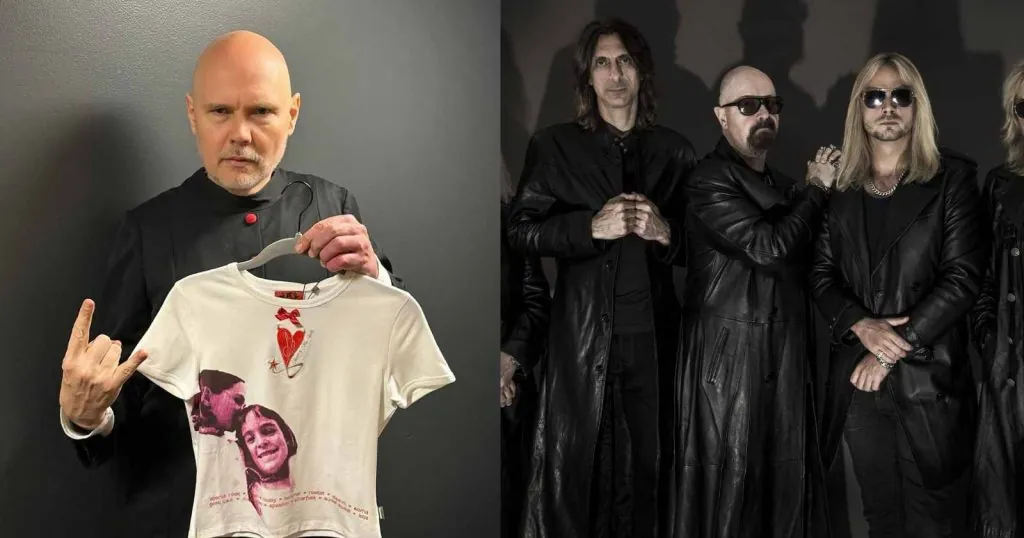Led by the singer, songwriter and guitarist Billy Corgan, Smashing Pumpkins is certainly one of the most influential alternative rock bands from the past years. Although the band is not often seen as a heavy Rock band, they were extremely influenced by Metal bands and Corgan even praised Judas Priest, Metallica and other bands in an interview with Allison Hagendorf (Transcribed by Ultimate Guitar)
Billy Corgan praises Judas Priest and Metallica
“I was blessed, I saw [Maiden on their first tour with Bruce Dickinson. I saw Metallica on ‘Ride the Lightning’ and Judas Priest in ’82 at a racetrack on ‘Screaming for Vengeance’ tour. (Then) I saw Accept opening for Iron Maiden. As it is commonly understood about me, I don’t give a f**k what anybody thinks about music. Because most music thought is based on snobbery.”
“And the one thing that metal does, it reminds that not everybody cares about the snob vote, whether you’re talking about Metallica, Rush, or Mötley Crüe. If you grew up in the world I grew up in, and so many people [to whom] that music speaks in a very visceral way, it’s not supposed to be pretty. I mean, take Judas Priest. Here you have a closeted gay man in the ’80s, who’s going through all sorts of inner torment, scared that if he’s outed, it might blow up his band, and somehow, through that inner struggle, he found an audience that accepted him for who he is.”
He continued:
“I told Lars this when I was on his show, ‘Fade to Black’ by Metallica came out when my grandmother was dying of cancer. That song saved my life… When you’ve had those moments with rock, there’s a loyalty between band and fan. When we started in the ’80s, and started playing metal riffs in our alt-rock songs —I mean, the amount of snobbery that we got because [of it].”
“And I don’t want to name names, but some bands were flirting with metal stuff and doing a great job of it, but it was always kind of positioned as a bit ironic… Like ‘This isn’t who we are, because we don’t want to get associated with all this stuff that people would commonly associate with at the time… Satan and misogyny [laughs]. We embraced [metal] in a way that made people uncomfortable, [and] I was like, ‘This is great. I want to make these people uncomfortable. I really do.'”

